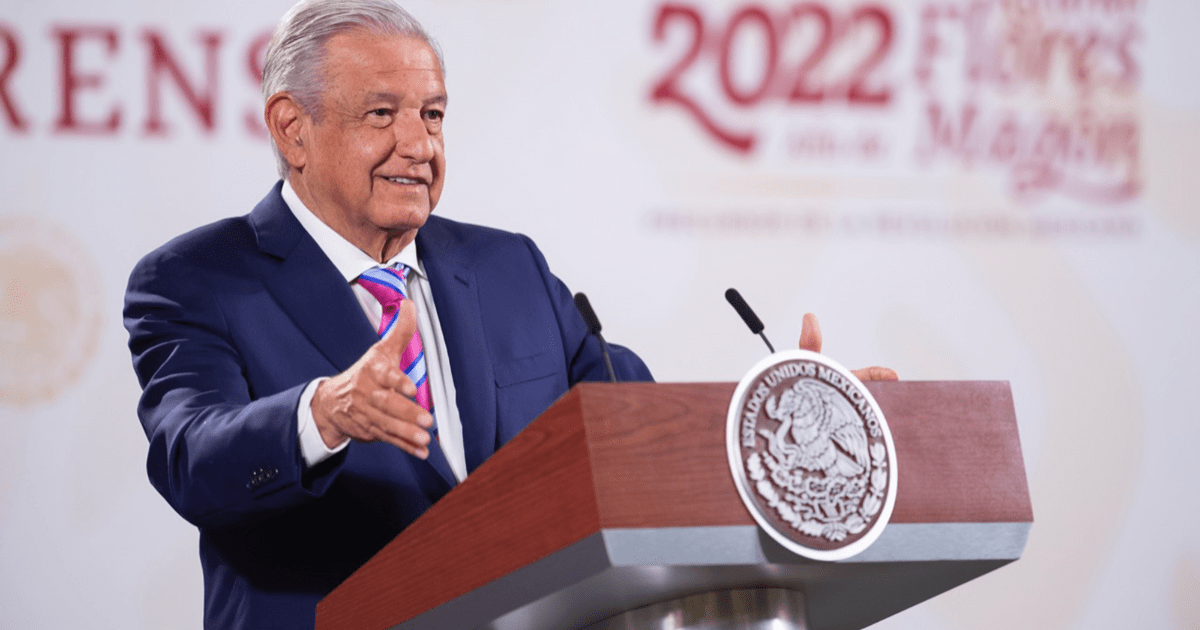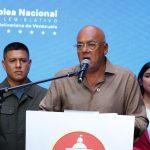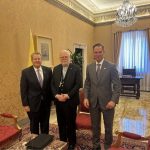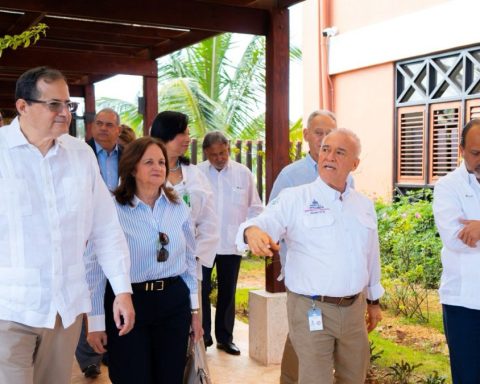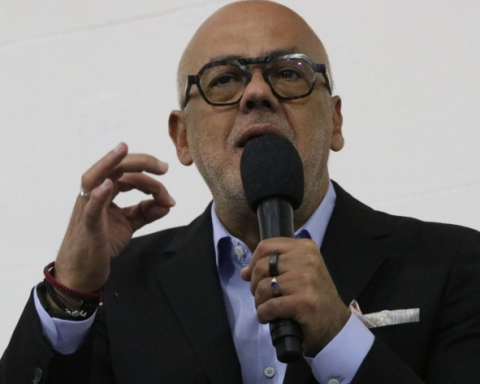More than reporting government achievements, controlling crises or exercises in transparency and accountability, the president Andres Manuel Lopez Obrador uses morning press conferences as instruments of propaganda and indoctrination, Luis Estrada stated.
In an interview on the occasion of the presentation of his book The empire of the other data. Three years of falsehoods and deceit from the Palaceedited by Grijalbo, the author assures that the president has distorted this communication instrument and the most affected is him and his government because, instead of dedicating himself to protagonizing lawsuits with real and imaginary enemies, he could dedicate himself to informing the public policies that he implements and its results.
He is also director of SPIN Political Communication Workshop offers in his book an analysis of the communication policy of populist political leaders, documents the dozens of untrue statements, promises, unverifiable and false commitments of the mexican president and break down his narrative.
It shows that as of November 30, 2021, the president had said since National Palace 55,042 unverifiable statements, 5,797 promises, 4,241 commitments and 1,788 false statements, which shows that he is not prepared, but he does not stop doing them because on many occasions it is the only public event he has on the day, in addition to choosing who he asks and generally dodges questions.
– What is the weight that President Andrés Manuel López Obrador gives to communicate, regardless of whether he does it well or badly?
The analysis we carry out from SPIN-Political Communication Workshop is because Andrés Manuel López Obrador is the only president in history who has held daily press conferences and, since he has held them, no one else has followed his example. It is an issue that, in principle, would seem very daring, very innovative and prone to transparency and information, but, when analyzing the data, we observe that it is not transparent, that the information is hidden, that it does not answer the questions, that it does not support what who says, who chooses who asks. In short, everything that is documented in the book. So, in reality, more than an information, transparency and accountability tool, it is an instrument of propaganda. With that way of answering and the format he uses, anyone could hold daily press conferences.
— Did you distort the press conferences?
Yes. In press conferences of any kind, there is a very rigorous preparation. It is the most powerful tool of communication. There is an objective, which is to position a topic, seriousness, urgency. In short, different characteristics that are not respected in the president’s morning conferences.
Now, more than affecting the media or public opinion, in reality, the most affected is the president himself and his government, because the noise generated by the press conference, based on what the president says and cannot prove , the lawsuits that he creates, the real and imaginary enemies, in short, all this lawsuit leaves aside the possibility of boasting achievements of government, of what he calls the fourth transformation.
If we really had a government at the height of the Independence, the Reform or the Revolution, we would need a channel 24 hours a day, to transmit everything that is changing.
“Then why do you keep them?”
Two reasons are raised in the book. The first is that, in most cases, it is the only government activity that the president has on his agenda. So, if he stops doing them, it would seem that he didn’t work that day.
The second, since it is not an instrument of information, since it diverts questions and does not support what it affirms, in reality it is a propaganda instrument and no day is too bad to repeat or try to indoctrinate its followers.
His officials have said it, that what the president seeks with these conferences is to indoctrinate, trying to maintain a debate, not necessarily real, but generated by himself, in which he is the main protagonist and in which everyone can define themselves whether you are for or against.
— Is this government interested in communicating to inform or to make propaganda?
Clearly to make propaganda, because the crises have not been resolved with the conferences; With what the president says, new crises have been generated.
In terms of transparency, information and accountability, when the media have requested information that supports what the president says, they are told that it does not exist, that it is reserved, because the president largely improvises what he says in conferences. It doesn’t prepare.
Practically everything he says is not supported; actually goes against the principles
of the press conference and information. Everything is propaganda.
— Does your way of communicating reflect your way of governing?
What I put in the book at the beginning is a communication model of presidents who are considered populist, where they come to power with a promise to solve a conflict and to do justice for majorities against minorities, for the people against the elite, of the people against the conservatives, whatever you want to call it, and when they are already governing, the problem begins, because the problems do not turn out as they thought, largely due to lack of experience, among other issues.
They have no results and that lack of results replaced or compensated with more promises or with new promises. These governments spend their time making promises and the only way that they can be considered by the people and considered for their electoral decisions and government evaluation, is that those promises are fully disseminated.
That is why other presidents such as Nicolás Maduro and Hugo Chávez, in Venezuela, and Rafael Correa in Ecuador, had extensive television or radio programs, where they are supposedly in contact with the people, but what they are really doing is: one, fueling the conflict for which they came to power and keep it alive to demonstrate that it is necessary for them to stay there and be able to resolve what they promised and two, substitute government achievements, which do not exist, with promises that one day it will eventually be resolved.
The conference is therefore a collection of conflict and promises; statements that cannot be proven. We count more than 60,000, as of November 30, which is the date the book is cut, but which we just updated in an infographic a few days ago, in which President López Obrador exceeds 76,500 false or misleading statements. If we compare with those that The Washington Post told Donald Trump, which barely exceeded 35,000 in four years in all his events including tweets, we see that López Obrador incurs many more.
– How does this connect with the levels of acceptance of the president?
I would tell you two things. First, we see that the president’s popularity has fallen. According to the pollsters, he was at around 90% at the beginning of his administration, and right now he is at 50%. So the approval has dropped.
Second point, there has not been a study showing the direct causal association between conferences and approval.
Lectures are a unique exercise; no one had done it before and we cannot prove that what the president says has an impact on people because despite the fact that his team says that millions of people watch it, every day, they have never shared the rating numbers or the share or any.
We dedicate ourselves to counting the number of views of each of the conferences in the president’s account on Facebook, which has eight million followers and what we see is that less than 6% see the conferences.
The conference is less and less seen. According to the Facebook count, it is at its worst moment and it is normal that an exercise in which it is repeated so much, that is boring, that lasts two hours, does not have any attraction for people. It is not a show no matter how much one wants to do it.
— What is the opportunity cost for society and for the government itself?
The president uses the time to fight, to talk about stories and personal anecdotes and things to attack real and imaginary enemies, when he should be showing off the achievements of his government.
